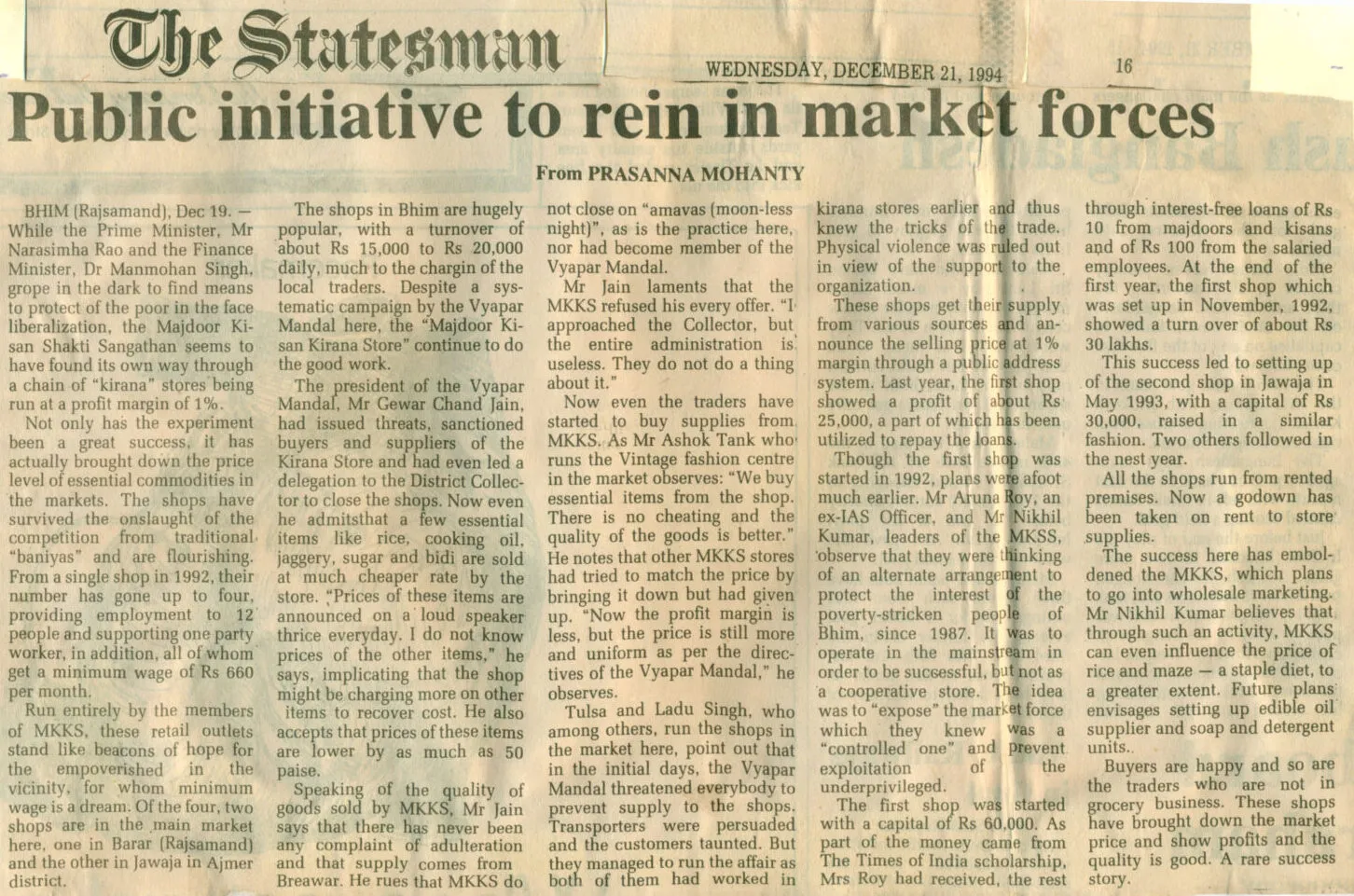
Public Initiative to Rein in Market Forces
In Bhim, Rajasthan, the Mazdoor Kisan Shakti Sangathan (MKSS) launched community-run Kirana (grocery) shops in the early 1990s to protect poor families from rising prices and exploitative traders. These shops, built on fairness and transparency, sold essential goods at very low profit margins — as little as 1%. Their presence forced local markets to reduce prices, allowing villagers to save more of their income. Local traders initially resisted, but even they later admitted the better quality and affordability provided by the MKSS shops. The initiative proved that when citizens unite and operate with honesty, they can create alternatives that promote justice and economic dignity.

